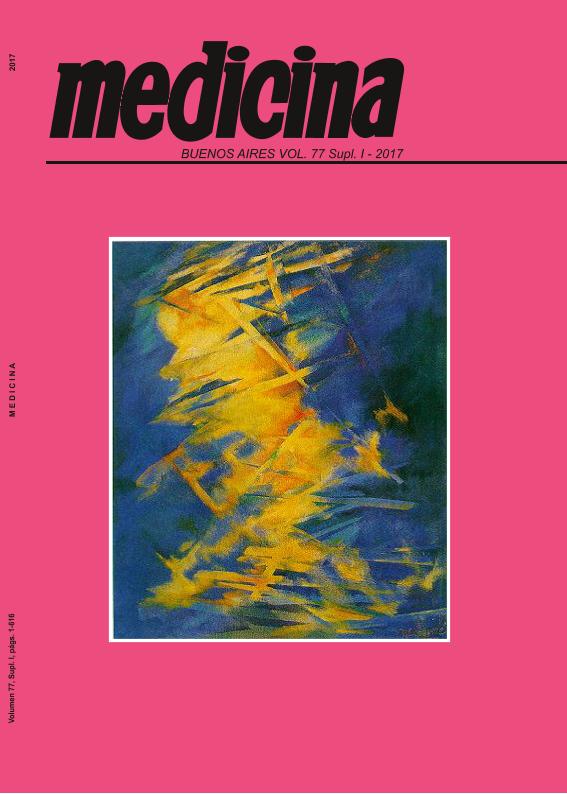Evento
Label-free proteomic analysis of the hexachlorocyclohexane-degrading actinobacteria Streptomyces sp. M7
Tipo del evento:
Reunión
Nombre del evento:
LXII Reunión Anual de la Sociedad Argentina De Investigación Clínica; LXV Reunión Anual de la Sociedad Argentina De Inmunología; XLIX Reunión Anual de la Sociedad Argentina De Farmacología Experimental; LIII Reunión Anual de la Sociedad Argentina De Investigación Bioquímica Y Biología Molecular; Reunión Anual de la Sociedad Argentina De Fisiología y XXIX Reunión Anual de la Sociedad Argentina De Protozoología
Fecha del evento:
13/11/2017
Institución Organizadora:
Sociedad Argentina De Investigación Bioquímica Y Biología Molecular;
Sociedad Argentina De Investigación Clínica;
Sociedad Argentina De Fisiología;
Sociedad Argentina De Protozoología;
Sociedad Argentina De Farmacología Experimental;
Sociedad Argentina de Inmunologìa;
Sociedad Argentina de Andrología;
Sociedad Argentina de Biofísica;
Sociedad Argentina de Biología;
Sociedad Argentina de Hematología;
Título de la revista:
Medicina (Buenos Aires)
Editorial:
Fundación Revista Medicina
Idioma:
Inglés
Clasificación temática:
Resumen
The increment of the global population and subsequently the increasing demand of food has promoted the use of pesticides such as hexachlorocyclohexane (HCH). HCH is a chlorinated pesticide used to protect crops from vector borne diseases. Large-scale production and the extensive use of this compound led to deterioration of environmental quality owing to its persistence in the environment. Over the last years, bacteria-mediated degradation of toxic organic compounds has become in an effective biotechnological process. Streptomyces sp. M7 was isolated from polluted sediments in the province of Tucumán, Argentina. Several physiological studies demonstrated the ability of M7 to remove HCH and highlighted the potential of this strain to be used in bioremediation processes. Degradation pathways for HCH and organochlorine compounds in general, are unknown in Actinobacteria. So far, a mechanism for the degradation of HCH was only proposed in Sphingobium japonicum. MS-based proteomics have become a powerful tool to elucidate and understand the mechanisms that underlie physiological processes. In the present work we used a MS-based, label-free, and quantitative proteomic approach as a starting point for understanding the degradation pathway for HCH in our strain. M7 proteome showed 293 proteins that were significantly up-regulated in the presence of HCH. Key enzymes involved in the dechlorination of HCH (LinA; LinB and LinC) were identified. In addition, 8 proteins assigned to the xenobiotic degradation category could be involved in the so called downstream degradation pathway of HCH. Proteomic results support the physiological capacity of Streptomyces sp. M7 to degrade hexachlorocyclohexane. In turn, the obtained results will allow to postulate a degradative pathway for this bacterium.
Palabras clave:
HEXACHLOROCYCLOHEXANE
,
DEGRADING
,
ACTINOBACTERIA
,
STREPTOMYCES
Archivos asociados
Licencia
Identificadores
Colecciones
Eventos(PROIMI)
Eventos de PLANTA PILOTO DE PROC.IND.MICROBIOLOGICOS (I)
Eventos de PLANTA PILOTO DE PROC.IND.MICROBIOLOGICOS (I)
Citación
Label-free proteomic analysis of the hexachlorocyclohexane-degrading actinobacteria Streptomyces sp. M7; LXII Reunión Anual de la Sociedad Argentina De Investigación Clínica; LXV Reunión Anual de la Sociedad Argentina De Inmunología; XLIX Reunión Anual de la Sociedad Argentina De Farmacología Experimental; LIII Reunión Anual de la Sociedad Argentina De Investigación Bioquímica Y Biología Molecular; Reunión Anual de la Sociedad Argentina De Fisiología y XXIX Reunión Anual de la Sociedad Argentina De Protozoología; Ciudad Autónoma de Buenos Aires; Argentina; 2017; 382-382
Compartir




